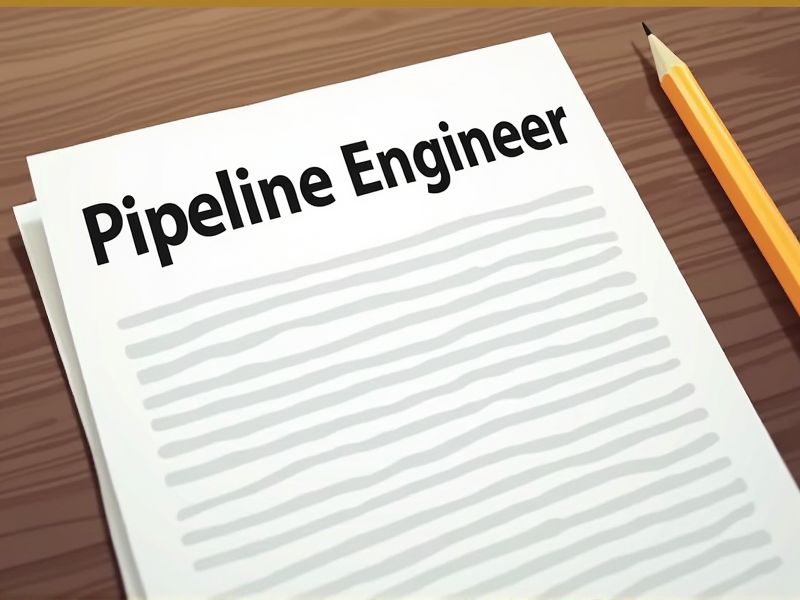
Pipeline engineering involves complex systems that require a profound understanding of various technical and safety protocols. Certifications validate a pipeline engineer's expertise in design, construction, and maintenance, ensuring adherence to industry standards and regulatory requirements. Achieving specific certifications enhances credibility and demonstrates commitment to mastering the evolving challenges in the field. Essential certifications for pipeline engineers include those related to safety regulations, technical proficiency, and project management.
API 1169 - Pipeline Construction Inspector Certification
API 1169 certification ensures that pipeline engineers possess the industry-specific knowledge required to oversee pipeline construction projects safely and effectively. This certification introduces standardized guidelines which help reduce the likelihood of construction errors, thereby minimizing potential environmental and safety risks. Engineers with this certification signal to employers their commitment to maintaining industry standards, enhancing their career opportunities. In the context of increasingly stringent regulatory requirements, having the API 1169 certification facilitates compliance and streamlines project approval processes.
API 570 - Piping Inspector Certification
Pipeline engineers need the API 570 - Piping Inspector Certification because it validates their technical knowledge in evaluating piping integrity. This certification ensures engineers understand inspection codes and standards vital for maintaining pipeline safety and reliability. Engineers with API 570 certification can identify potential failures, reducing risks of costly leaks or accidents. Companies often require this certification to comply with industry regulations and enhance trust in their infrastructure.
NACE Coating Inspector Certification (CIC)
A NACE Coating Inspector Certification (CIC) is crucial for pipeline engineers because it equips them with specialized knowledge in corrosion protection, vital for maintaining pipeline integrity. Without proper coating, pipelines are susceptible to environmental damage, leading to costly leaks and repairs. The certification ensures engineers understand industry standards and can oversee proper application techniques, reducing the risk of failure. Regulatory bodies often mandate such certifications, ensuring compliance and safety in pipeline projects.
NACE Cathodic Protection Technician Certification
Cathodic protection is critical in preventing pipeline corrosion, which directly impacts the longevity and safety of these infrastructures; NACE Cathodic Protection Technician Certification equips engineers with the necessary expertise. Corrosion-related pipeline failures often lead to costly repairs and environmental damage; possessing certified knowledge helps engineers mitigate these risks more effectively. Regulatory bodies often require qualified professionals to manage cathodic protection systems, making certification essential for compliance. Effective pipeline management heavily relies on preventing corrosion, so having certified skills ensures reliability and reduces maintenance costs.
OSHA 30-Hour Construction Safety Certification
Pipeline engineers often work on complex construction projects where safety hazards are prevalent. The OSHA 30-Hour Construction Safety Certification provides essential training on identifying and mitigating these risks, reducing potential accidents. Compliance with OSHA standards ensures pipeline engineers adhere to regulatory requirements, avoiding costly fines and legal issues. Enhanced safety knowledge leads to improved overall project safety culture, benefiting both workers and project timelines.
Certified Welding Inspector (CWI)
The involvement of a Certified Welding Inspector (CWI) ensures the structural integrity and safety of pipeline constructions because they thoroughly examine welds for defects. Pipeline engineers rely on CWIs to uphold industry standards and compliance with regulatory requirements, minimizing the risk of failures. Precise documentation provided by CWIs is critical for future inspections, facilitating maintenance and aiding in the prompt resolution of potential issues. CWIs enhance the overall quality of a project by verifying that welding practices meet specified criteria, directly impacting the longevity and functionality of pipeline systems.
ASME Boiler & Pressure Vessel Code Certification
The ASME Boiler & Pressure Vessel Code Certification ensures a pipeline engineer adheres to the highest safety standards, minimizing the risk of failures. This certification demonstrates the engineer's capability to design and evaluate systems effectively, promoting reliability in operations. Compliance with the ASME code is often a legal requirement for project approval, influencing project timelines and budgets. Earning this certification enhances the engineer's professional credibility, increasing opportunities for career advancement.
Fundamentals of Engineering (FE) Certification
Obtaining the Fundamentals of Engineering (FE) Certification establishes a baseline of knowledge and expertise necessary for a pipeline engineer, which ensures a solid understanding of core engineering principles. Employers often require this certification to evidence a candidate's capability and commitment to the field, potentially influencing hiring decisions. It serves as a precursor to gaining the Professional Engineer (PE) license, which can lead to greater responsibilities and career advancement. Regulatory compliance and safety standards necessitate a certified understanding of engineering practices in designing, analyzing, and managing pipeline systems.
Professional Engineer (PE) License in Pipeline Engineering
Obtaining a Professional Engineer (PE) License ensures that a pipeline engineer has met rigorous academic and professional standards, which enhances public trust in their work. This credential validates the engineer's ability to design, evaluate, and manage pipeline systems safely and effectively. Many jurisdictions require a PE License for engineers to sign off on technical plans and drawings, providing a legal endorsement of their expertise. The PE License also often serves as a differentiator in the job market, offering career advancement opportunities and potentially higher salaries.
Certificate in Pipeline Engineering and Integrity Management
A Certificate in Pipeline Engineering and Integrity Management provides specialized knowledge essential for designing safe and efficient pipeline systems. It equips pipeline engineers with skills to actively manage the integrity of aging infrastructure, reducing the risk of leaks and environmental hazards. The coursework ensures engineers are up-to-date with the latest technologies and regulatory requirements, crucial for compliance and operational efficiency. Having this certification enhances career prospects, as employers prioritize candidates with proven expertise in maintaining pipeline safety and reliability.
Summary
As a Pipeline Engineer, obtaining certifications can significantly enhance your professional credibility and open up more career opportunities. These certifications often lead to higher salaries as they validate your technical expertise and commitment to industry standards. With recognized credentials, you typically gain a competitive edge in the job market, making you more attractive to employers. Additionally, certifications can lead to increased project responsibilities, allowing you to work on more complex and high-profile projects.
